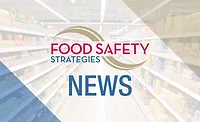FDA Issues International Food Safety Capacity-Building Plan under the Food Safety Modernization Act
In 2011, Congress enacted the FDA Food Safety Modernization Act (FSMA), recognizing the unique challenges faced by FDA in the area of food safety in the 21st century. FSMA directs FDA to build a new food safety system based on the public health principle of comprehensive prevention, an enhanced focus on risk?based resource allocation, and partnerships across the public and private sectors to minimize hazards from farm to table. In addition, Section 305 of FSMA calls on FDA to develop a comprehensive plan to expand the technical, scientific, and regulatory food safety capacity of foreign governments and their respective food industries in countries that export foods to the United States (the “Plan”). This Plan meets the Section 305 requirement, and does so by incorporating FSMA’s principles of comprehensive prevention, risk-based resource allocation, and partnering.
This Plan provides a strategic framework for FDA’s international food safety capacity-building activities. It outlines goals, objectives, and key actions that will provide a framework for the FDA in setting priorities and managing international food safety capacity building programs.
The Plan will also enable all stakeholders to see the breadth of food safety capacity-building efforts on the part of FDA. It charts a direction for how FDA will prioritize its capacity-building efforts based on risk, coordinate with other partners to avoid duplication of efforts, and to broaden the reach of technical assistance and capacity-building efforts. FDA will use data to develop strategies, allowing the agency to make decisions about capacity-building based on identifiable needs, while also allowing the agency to measure the impact of its efforts.
The plan addresses the six elements required by Section 305 of FSMA by incorporating them into four key goals and objectives, as supplemented by additional themes. The Plan’s key goals and objectives are:
• Ensure efficiency across the FDA Foods and Veterinary Medicine Program
• Increase effectiveness through evidence-based decision making
• Support the exchange of information between FDA and other foreign government agencies or other entities
• Enhance technical assistance and capacity-building in food
Building International Capacity with Respect to Food Safety
About 48 million people (1 in 6 Americans) get sick, 128,000 are hospitalized, and 3,000 die each year from foodborne diseases, according to recent data from the Centers for Disease Control and Prevention. This is a significant public health burden that is largely preventable.?
The FDA Food Safety Modernization Act (FSMA), signed into law by President Obama on January 4, 2011 enables FDA to better protect public health by strengthening the food safety system. It enables FDA to focus more on preventing food safety problems rather than relying primarily on reacting to problems after they occur. Specifically, the legislation significantly enhances FDA’s ability to oversee the millions of food products that come into the United States from other countries each year. An estimated 15 percent of the U.S. food supply is imported, including 60 percent of fresh fruits and vegetables and 80 percent of seafood.
The law gives FDA important new tools to hold imported foods to the same standards as domestic foods. With these new tools, FDA can better ensure that imported products meet U.S. standards and are safe for U.S. consumers.
Full Text of the Law Relating to International Capacity Building
• SEC. 305. Building Capacity of Foreign Governments with Respect to Food Safety
FDA's International Food Safety Capacity-Building Plan
Section 305 of FSMA requires FDA to develop a comprehensive plan to expand technical, scientific and regulatory food safety capacity of foreign governments and their respective food industries in countries from which foods are exported to the United States. Further, FDA is required to develop the capacity-building plan in consultation with certain stakeholders, including representatives of the food industry, officials from other federal agencies, foreign government officials, non-governmental organizations that represent the interests of consumers, and other stakeholders. The capacity-building plan shall include, as appropriate:
- Recommendations for bilateral and multilateral arrangements and agreements, including providing for responsibilities of exporting countries to ensure food safety;
- Provisions for secure electronic data sharing;
- Provisions for mutual recognition of inspection reports;
- Training of foreign governments and food producers on U.S. requirements for safe food;
- Recommendations on whether and how to harmonize requirements under the Codex Alimentarius; and
- Provisions for multilateral acceptance of laboratory methods and testing and detection techniques.
View FDA's International Food Safety Capacity-Building Plan (PDF: 5.7MB), February 2013.
Public Meeting
FDA hosted a one-day public meeting entitled “International Capacity Building with Respect to Food Safety” on June 19, 2012 in Washington, DC. The purpose of this public meeting was to provide interested persons a forum to learn about FDA’s current thinking on the international capacity building plan and offer an opportunity for the public to provide comments. See more information on the upcoming public meeting.
Looking for quick answers on food safety topics?
Try Ask FSM, our new smart AI search tool.
Ask FSM →







